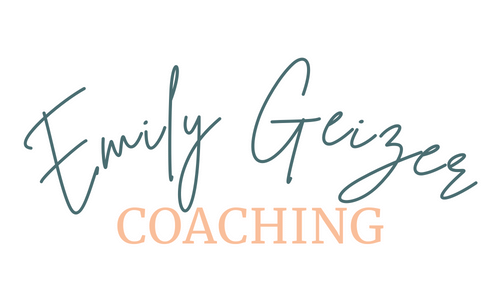The Neuroscience Approach to Gratitude
According to the latest neuroscience research, gratitude improves our psychological, spiritual, and physical well-being. Science and long-held religious and spiritual traditions agree that gratitude does good.
Why does it work? Noticing even small blessings makes us feel in abundance rather than deprived , which releases happy hormones. These chemicals have a positive ripple effect, countering the effects of stress and a dis-regulated nervous system. Inflammation decreases, stress decreases, depression lifts. It’s medicine to the emotions that, when left unchecked, cause some of our biggest problems in life.
Gratitude is how we rewire the brain for more joy and less stress.
Gratitude proves to us that gifts abound, even in times of darkness. Notice the darkness. Notice the light. Put your attention on whichever you want more of. Science shows that’s what you’ll get.
3 Steps to Rewire Using Gratitude:
Be intentional. This isn’t s a quick “Thanks!” and mentally check off that we’ve been grateful.
Be very specific. What exactly are you grateful for?
Anchor in a feeling of appreciation. Go beyond a thought and feel the heart expansion.
5 Ways to Develop a Gratitude Practice:
Attitude adjustment - Look for things to be grateful for. There’s plenty in this world that isn’t so good—those things are easy to find. This helps you to always be on the lookout for what is positive. This is what it means to develop an attitude of gratitude.
Gratitude journal - The act of writing your gratitude is beneficial. Challenge yourself by not repeating items from the previous days, for this will stretch you to look more deeply at all the “little” things that enhance your life and give you joy: waking in a warm bed; your favorite song; a phone call from a friend; the ability to touch, see, or hear; electricity; the beating of your heart; a hug. You can write in your journal just before bed or when you wake up in the morning. The time of day isn’t important; what is important is that you consistently take a few moments to consciously focus your mind and heart on your blessings.
Thank you cards - While we often thank people verbally, the written word can be even more powerful because someone has taken the time to write their appreciation. A letter can also be re-read and treasured, creating joy and love that will continue to ripple out into the universe.
Habit stack - Every time I walk in the door of my home, I am reminded to count my blessings; for example, that I even have a home to walk into. Every time I spend the 2 minutes brushing my teeth I appreciate the clean water, the access to toothpaste, my healthy teeth and gums, my Sonicare toothbrush, for example.
Family gratitude - Create a culture of gratitude in your family and embed this practice into a daily gathering, such as before you eat a meal together. This is our dinnertime ritual and we LOVE it!
What’s something you’re grateful for today?
